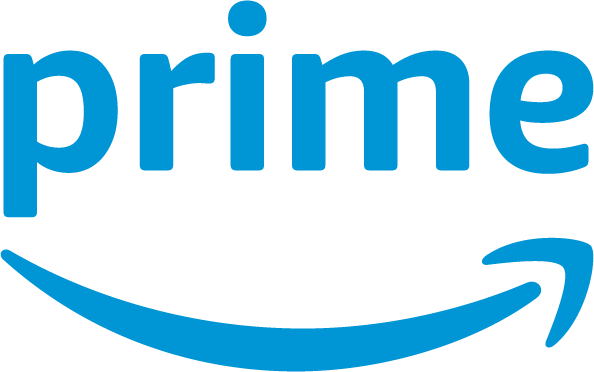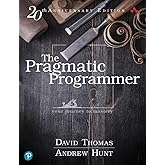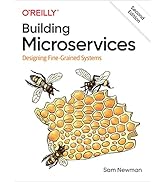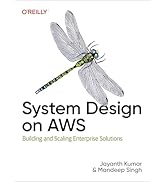
Enjoy fast, free delivery, exclusive deals, and award-winning movies & TV shows with Prime
Try Prime
and start saving today with fast, free delivery
Amazon Prime includes:
Fast, FREE Delivery is available to Prime members. To join, select "Try Amazon Prime and start saving today with Fast, FREE Delivery" below the Add to Cart button.
Amazon Prime members enjoy:- Cardmembers earn 5% Back at Amazon.com with a Prime Credit Card.
- Unlimited Free Two-Day Delivery
- Streaming of thousands of movies and TV shows with limited ads on Prime Video.
- A Kindle book to borrow for free each month - with no due dates
- Listen to over 2 million songs and hundreds of playlists
- Unlimited photo storage with anywhere access
Important: Your credit card will NOT be charged when you start your free trial or if you cancel during the trial period. If you're happy with Amazon Prime, do nothing. At the end of the free trial, your membership will automatically upgrade to a monthly membership.
Buy new:
-19% $24.19$24.19
Ships from: Amazon.com Sold by: Amazon.com
Save with Used - Like New
$13.50$13.50
Ships from: Amazon Sold by: BY&MN
Return this item for free
We offer easy, convenient returns with at least one free return option: no shipping charges. All returns must comply with our returns policy.
Learn more about free returns.- Go to your orders and start the return
- Select your preferred free shipping option
- Drop off and leave!

Download the free Kindle app and start reading Kindle books instantly on your smartphone, tablet, or computer - no Kindle device required.
Read instantly on your browser with Kindle for Web.
Using your mobile phone camera - scan the code below and download the Kindle app.

Follow the authors
OK
Apprenticeship Patterns: Guidance for the Aspiring Software Craftsman 1st Edition
Purchase options and add-ons
Compiled from years of research, many interviews, and feedback from O'Reilly's online forum, these patterns address difficult situations that programmers, administrators, and DBAs face every day. And it's not just about financial success. Apprenticeship Patterns also approaches software development as a means to personal fulfillment. Discover how this book can help you make the best of both your life and your career.
Solutions to some common obstacles that this book explores in-depth include:
- Burned out at work? "Nurture Your Passion" by finding a pet project to rediscover the joy of problem solving.
- Feeling overwhelmed by new information? Re-explore familiar territory by building something you've built before, then use "Retreat into Competence" to move forward again.
- Stuck in your learning? Seek a team of experienced and talented developers with whom you can "Be the Worst" for a while.
"Brilliant stuff! Reading this book was like being in a time machine that pulled me back to those key learning moments in my career as a professional software developer and, instead of having to learn best practices the hard way, I had a guru sitting on my shoulder guiding me every step towards master craftsmanship. I'll certainly be recommending this book to clients. I wish I had this book 14 years ago!" -Russ Miles, CEO, OpenCredo
- ISBN-100596518382
- ISBN-13978-0596518387
- Edition1st
- PublisherO'Reilly Media
- Publication dateNovember 24, 2009
- LanguageEnglish
- Dimensions7 x 0.51 x 9.19 inches
- Print length165 pages
Frequently bought together

Customers who viewed this item also viewed
From the brand

-

Sharing the knowledge of experts
O'Reilly's mission is to change the world by sharing the knowledge of innovators. For over 40 years, we've inspired companies and individuals to do new things (and do them better) by providing the skills and understanding that are necessary for success.
Our customers are hungry to build the innovations that propel the world forward. And we help them do just that.
-
Your partner in learning
-
Bestsellers
-
Software Development
-
Programming Languages
-
AI / Machine Learning
-
Data Science
-
Data, Databases and more
-
Cloud Services
-
Business
-
Finance
-
Blockchain / Cryptocurrency
-
Security
-
Cookbooks
-
Head First series
-
97 Things series
-
Lean series
Editorial Reviews
About the Author
Adewale Oshineye is an engineer at a little-known search engine named Google. This is a consequence of many deeply geeky evenings spent programming 8-bit computers when he was a child. When he grew up Adewale somehow fell into IT consultancy. His career at consultancies such as Thoughtworks gave him the chance to work on projects ranging from point-of-sale systems for electrical retailers to trading systems for investment banks. It also gave him a chance to learn from some of the most interesting software craftspeople in Western Europe. In those rare moments when he's not in front of a computer he can be found behind a digital camera somewhere in London.
Product details
- Publisher : O'Reilly Media; 1st edition (November 24, 2009)
- Language : English
- Paperback : 165 pages
- ISBN-10 : 0596518382
- ISBN-13 : 978-0596518387
- Item Weight : 12 ounces
- Dimensions : 7 x 0.51 x 9.19 inches
- Best Sellers Rank: #1,044,203 in Books (See Top 100 in Books)
- #263 in Software Design & Engineering
- #778 in Computer Programming Languages
- #1,242 in Software Development (Books)
- Customer Reviews:
About the authors

Adewale Oshineye is an engineer at a little-known search engine named Google. He works as a Developer Advocate on the Google+ project.
This is a consequence of many deeply geeky evenings spent programming 8-bit computers when he was a child. When he grew up Adewale somehow fell into IT consultancy. His career at consultancies such as Thoughtworks gave him the chance to work on projects ranging from point-of-sale systems for electrical retailers to trading systems for investment banks. It also gave him a chance to learn from some of the most interesting software craftspeople in Western Europe.
In those rare moments when he's not in front of a computer he can be found behind a digital camera somewhere in London.

Dave Hoover is a family therapist turned software developer turned learning facilitator. Since his first career change in late 2000, Dave has followed his passion for problem solving through several different companies, including ThoughtWorks, Obtiva, and Groupon. As Obtiva's Chief Craftsman he led the company into several new areas including apprenticeship, Ruby development, and startup development. Dave left Groupon in 2012 to focus on disrupting higher education. He co-founded Dev Bootcamp and launched their Chicago location in the Spring of 2013.
Dave enjoys speaking at technology conferences like RailsConf, QCon, Øredev, and Rubyfuza, along with spreading his ideas via his blog and Twitter.
Dave's other passions include his 3 amazing children, his overachieving wife, coaching football, and competing in endurance sports.
Customer reviews
Customer Reviews, including Product Star Ratings help customers to learn more about the product and decide whether it is the right product for them.
To calculate the overall star rating and percentage breakdown by star, we don’t use a simple average. Instead, our system considers things like how recent a review is and if the reviewer bought the item on Amazon. It also analyzed reviews to verify trustworthiness.
Learn more how customers reviews work on AmazonTop reviews from the United States
There was a problem filtering reviews. Please reload the page.
- Reviewed in the United States on September 12, 2015This is truly a great reference book for software craftsmanship.
Initially Dave gives the story about his experience of software craftsmanship. Then the definitions of software craftsmanship, being an apprentice, being a journeyman, being a master are given. Also apprenticeship and apprenticeship pattern are introduced. In following chapters, Dave and Ade use Context-Problem-Solution-Action pattern to address different situations we may encounter in our programming life. Every situation is a signal to improve ourselves and this book points "how-to" when we are stuck in these situations.
To be level up, we need to forget who we are first (emptying the cup). Then think about what we want and the long-term goal (walking the long road). Once the direction is chosen, just do it and don't be afraid of failures (accurate self-assessment). There is no really end of software craftsmanship, and all we could do is to get better and better in our whole life (perpetual learning, construct your curriculum).
In Chinese Kong-Fu, there are two categories. One is to train our skill, and the other is to train our mind. "Apprenticeship Patterns" is more like the latter category. Instead of hard skills, this book gives us some guidances in each stage of software craftsmanship on self-improvement.
- Reviewed in the United States on June 29, 2013This is a quick read packed with additional resources to follow up on.
As a very experienced programmer who is now moving from the mainframe world late in my career, I found it very refreshing that the author emphasized developing skills as being more important than having experience(surviving).
This is a book I will return to many times for the valuable information it contains.
I highly recommend this book to anyone that is open to looking at learning in a new way.
- Reviewed in the United States on November 7, 2017This is a book I wish I had when I was first getting interested in software development. Extremely inspirational!
I gave away my first copy to someone who had just entered school but I found myself missing it so I just had to buy another copy! I may end up buying yet another copy to keep at work for interns and new hires.
- Reviewed in the United States on September 9, 2014This book at its heart is about honing, nurturing and innovating your craft of choice. The authors take a long view of what it means to build meaningful things in a disciplined yet creative fashion. Heavily recommend for anyone interested in meaningful skill development.
- Reviewed in the United States on July 11, 2010I think this book is a must read for those starting their software career and a solid reality check for those further down the path that are pursuing craftsmanship in their career.
- Reviewed in the United States on April 7, 2014The underlying principles apply very well to any other profession, and not only in apprenticeship context: they apply to anyone that wants some hints on how to keep afloat as a professional.
- Reviewed in the United States on May 17, 2010Being successful in IT means forever being committed to continual learning. But are there better ways to approach that learning? Are there times you get stuck when trying to move beyond what you already know? Do you find yourself somewhat fearful of moving outside your current level of expertise because you'll end up feeling stupid? Dave Hoover and Adewale Oshineye have written what I consider to be an *excellent* book on learning patterns titled Apprenticeship Patterns: Guidance for the Aspiring Software Craftsman . Though you may think the "aspiring software craftsman" limits this to people starting out, you'd be wrong. There is so much wisdom here that I'll likely be referring back to it for years to come.
Contents:
Software Craftsmanship Manifesto
Introduction
Emptying The Cup
Walking The Long Road
Accurate Self-Assessment
Perpetual Learning
Construct Your Curriculum
Conclusion
Pattern List
A Call For Apprenticeship
A Retrospective On The First Year Of Obtiva's Apprenticeship Program
Online Resources
Bibliography
Index
The authors start by defining exactly what "software craftsmanship" entails. Among many of their thoughts, they define it as a community of practice that encompasses values such as a growth mindset, the need to adapt and change, being pragmatic instead of dogmatic, and the belief that we should share what we know instead of hoarding that knowledge. These values along with the others they talk about point strongly back to the individual's responsibility to control their own path and direction, and that's where the learning patterns come in. Instead of using a "hit or miss" method of gaining new skills, they outline a number of techniques, or patterns, which can help you maintain a level of structure to your learning, while also helping you avoid sticking points that can often derail us.
Each of the chapters focuses on a certain aspect of learning as we move up the levels of our craft. Emptying The Cup talks about how we need to approach new skills as willing beginners instead of struggling with feelings that we should know everything immediately. Learning takes time. Walking The Long Road focuses on how becoming a master in a language or skill is a long-term process. Just when you think you have a handle on something, you will look around and see others who are light-years ahead of you. But that's OK, as they have been traveling the long road just like you. Accurate Self-Assessment guides you back to making sure you measure yourself against the best (such as being the worst in a group of experts) rather than feeling you're an expert in a small pond. Perpetual Learning is just that... the constant quest to pick up new information and incorporate it into your skill base. And finally, Construct Your Curriculum helps to guide you to resources that will give you the most value for the time spent reading and learning.
This book grabbed hold of me early and didn't let go. I'm personally in the process of trying to gain some new technical skills, and I sort of wondered if I was struggling with the feeling of "being stupid" when it came to comparing what I need to know with what I already know in the Notes/Domino world. The answer to that was a resounding "yes!" Patterns such as The White Belt (setting aside my previous knowledge to learn new knowledge) and Confront Your Ignorance (pick a skill and actively fill in the gaps in your knowledge of it) made perfect sense to me as I work through my new learning. Because it's been such as long time since I was a "beginner" with a new technology, it's easy to forget these mindsets and as a result end up struggling. I appreciated being reminded of them in a way that I can actively use them again.
On a side note... It's not a stretch to look at these patterns and find that you could apply them to *any* sort of new learning. Granted, most of the commentary on each pattern is software-related, but most transcend that narrow niche. Take a skill such as writing... Most (if not all) of these patterns still apply. You don't learn how to write in three months and then stop because you've learned everything. You need to continually practice, seek out advice and mentoring from those better than you, focus on different aspects where you're weak, etc. Following these patterns in any new endeavor will greatly enhance your chances of becoming a craftsman in that area.
While this book won't teach you a new technology, it will most definitely help you learn that new technology in a way that is sustainable over the long haul. Incorporating these mindsets into your life will do wonders to make you feel much more competent, as well as helping you to enjoy the journey along the way. Apprenticeship Patterns is a highly recommended read.
- Reviewed in the United States on April 9, 2016Great advice for aspiring programmers.
Top reviews from other countries
 Francesco M.Reviewed in Germany on August 19, 2019
Francesco M.Reviewed in Germany on August 19, 20195.0 out of 5 stars One of the best books about Software Craftmanship. Buy it now!
One of the best books about Software Craftmanship. Buy it now!
 EdReviewed in the United Kingdom on February 23, 2019
EdReviewed in the United Kingdom on February 23, 20195.0 out of 5 stars Good read && relevant content
I found the content in this book to be a good read and would recommend it to all developers.
 Conrad BakerReviewed in the United Kingdom on October 18, 2016
Conrad BakerReviewed in the United Kingdom on October 18, 20165.0 out of 5 stars Five Stars
The book is good quality, great content.











































































